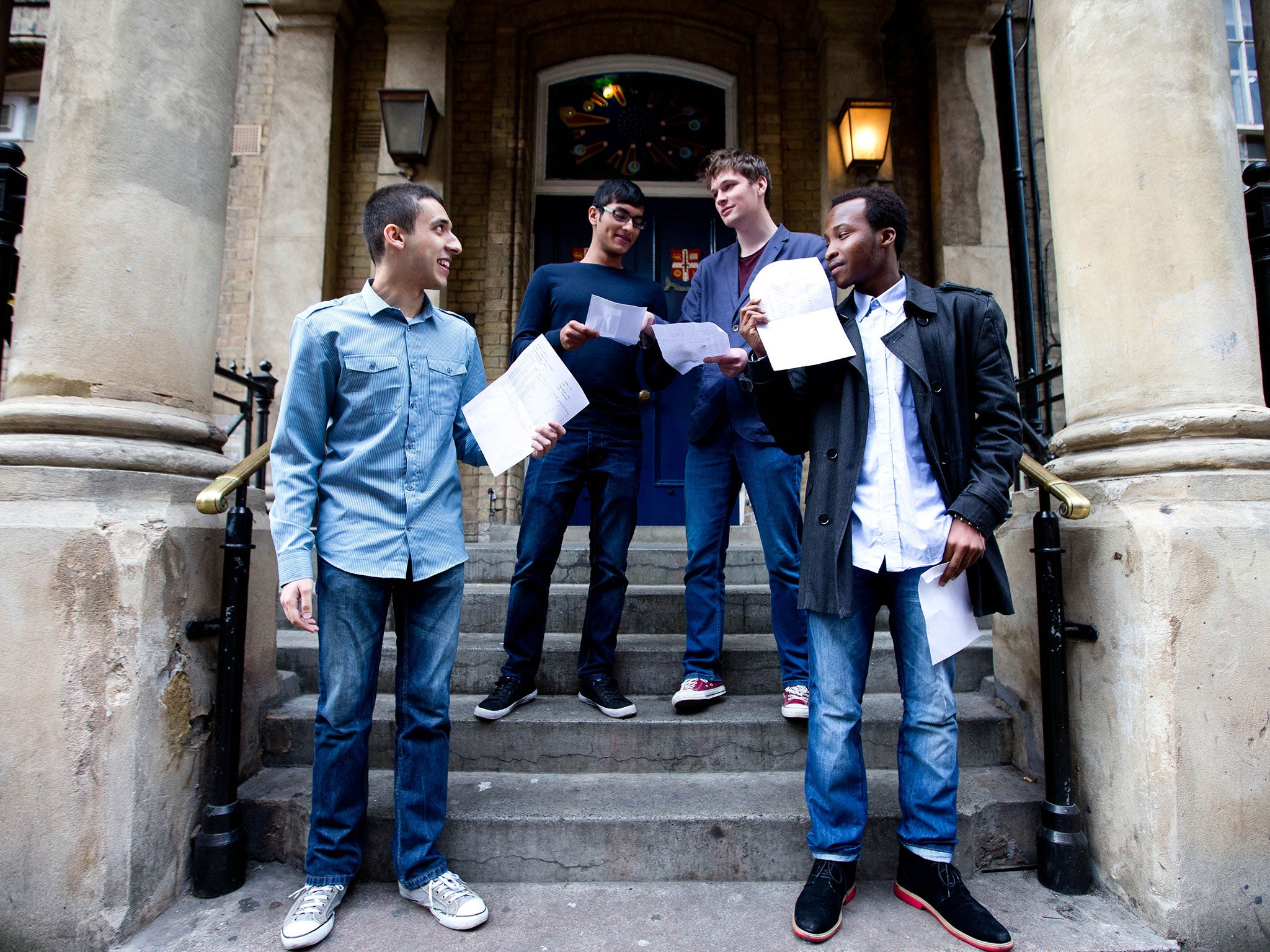Record numbers win places at uni but gap between the sexes widens
Despite fewer A-level passes, more students than ever gain university entry

Your support helps us to tell the story
From reproductive rights to climate change to Big Tech, The Independent is on the ground when the story is developing. Whether it's investigating the financials of Elon Musk's pro-Trump PAC or producing our latest documentary, 'The A Word', which shines a light on the American women fighting for reproductive rights, we know how important it is to parse out the facts from the messaging.
At such a critical moment in US history, we need reporters on the ground. Your donation allows us to keep sending journalists to speak to both sides of the story.
The Independent is trusted by Americans across the entire political spectrum. And unlike many other quality news outlets, we choose not to lock Americans out of our reporting and analysis with paywalls. We believe quality journalism should be available to everyone, paid for by those who can afford it.
Your support makes all the difference.Record numbers of students are heading to university, with more than half a million expected to take up places even though A-level results were slightly down this year.
More than 20,000 teenagers from the most disadvantaged UK backgrounds have won places – up eight per cent on last year, an analysis by admissions service UCAS found.
The figures also revealed that the gap between the sexes is widening, with more than 52,000 less men than women allocated places yesterday, prompting UCAS chief executive Mary Curnock Cook to call for more focus on boys’ achievement at school. A total of 224,570 women had had their places confirmed yesterday, compared to just 172,420 men. The gap had widened since the same point last year, when just under 46,000 more women had been placed.
Ms Curnock Cook said: “Today’s numbers are a reflection of the continuing strong demand for higher education. A combination of extra places available and the falling population of 18-year-olds means that students are in a good position to secure a place this year.”
Despite results being slightly down overall, more students – 352,590 – won places on their first choice course, up two per cent on 2013. Higher education experts said this was partly due to a new system which removed the limit on students achieving ABB grades or better, allowing universities more flexibility to accept students who had missed their grades or to make last-minute offers to candidates who did better than expected. The Government also created 30,000 extra places this year.
“There may also be places available for highly qualified students who have narrowly missed out on their first choice. We encourage those students to get in touch with Ucas to see whether there may be places available to them.”
Universities Minister Greg Clark said: “Higher education is one of the most important sources of social mobility and I welcome the growth in the number of students from disadvantaged backgrounds.
“The lifelong benefits of higher education are significant. Graduates are much more likely to be employed than non-graduates. They also earn on average significantly more over their lifetime.”
Join our commenting forum
Join thought-provoking conversations, follow other Independent readers and see their replies
Comments